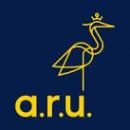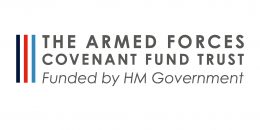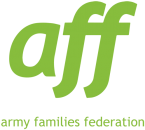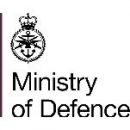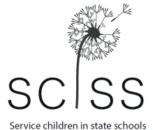New research reveals financial support for children from Armed Forces families
Posted in News
Ground-breaking research by the Directory of Social Change (DSC) published today, reveals that funders spend at least £8.6 million each year on the needs of children with parents in the armed forces, supporting needs such as education, mental health and wellbeing, and crisis support.
How many funders and how much funding?
DSC identified 69 funding organisations (including Armed Forces and wider charities, statutory organisations, businesses, and social enterprises) that provided funds to support Armed Forces children and young people in the UK, either directly or via intermediary organisations. Collectively they spend at least £3.1 million annually to support 8,600 individuals and at least £5.5 million to support 600 organisations. In addition, statutory funding streams (not included in the 69 funders outlined above) provided £28 million.
DSC also found that just 10% of the 69 funders identified were defined as specialist child-focused funders. In other words, only a small minority of funders have a central focus on supporting Armed Forces children and young people.
Who and what can be funded?
The research found that eligibility criteria for funding were generally quite broad. The typical age range for support is between birth and 18 or 25 years of age. Most funders could support Armed Forces children and young people throughout the UK and from both Serving and ex-Service families. Funders most commonly directed funding towards wellbeing and social support, followed by educational support and mental health support for children.
How can I find out more?
Funded by Forces in Mind Trust, and in partnership with the Service Children’s Progression (SCiP) Alliance – the full report also includes findings about the types of funding provided, whether funders require evaluation of project outcomes, and the role of collaboration in better meeting the needs of children from service families. It also includes recommendations for funders and further research.
The report, Funding for Armed Forces Children and Young People, is launched today and can be freely accessed at www.dsc.org.uk/research, or via the direct link: www.dsc.org.uk/publication/funding-for-armed-forces-children-and-young-people/
Lead author, Chester Howarth (DSC Senior Researcher), said:
“For the first time, this research paints a picture of the landscape of funding for Armed Forces children and young people, filling gaps in knowledge and shedding light on collaboration and evaluation among those funding Service children and young people.”
About the Service Children’s Progression (SCiP) Alliance
The SCiP Alliance works for a vision of thriving lives for Service children. The Alliance is led by the University of Winchester, and brings together key allies (practitioners, researchers, policymakers and funders) to build a stronger evidence base, better policy, and enhanced support for Service children’s education and progression, placing their voices at the heart of all they do. The SCiP Alliance now includes a UK-wide Hub Network of 12 Hubs, which are hosted by 21 partners and connect over 800 allies. This large and diverse community has enabled the SCiP Alliance’s allies to enhance their support for Service children through almost 200 network events; a resource bank accessed by 23,750 users; training for over 600 professionals on the Thriving Lives Toolkit; and 1,800 documents downloaded from their online research repository.
Visit www.scipalliance.org or on Twitter @scipalliance to learn more.
About the Directory of Social Change (DSC)
Directory of Social Change (DSC), has a vision of an independent voluntary sector at the heart of social change, so we exist to support charities, voluntary organisations and community groups in the work they do.
DSC’s award-winning research continues to inform policymakers and practitioners in the voluntary sector, from grant-makers to government. To find out more about DSC, visit us at www.dsc.org.uk, or get in touch via research@dsc.org.uk to see how DSC’s research can help your organisation.
Follow DSC on twitter @dsc_charity, or visit DSC online at www.dsc.org.uk
About Forces in Mind Trust (FiMT)
Forces in Mind Trust was founded in 2011 with a £35 million endowment from the National Lottery Community Fund to improve transition to civilian life for Service leavers and their families. Our mission is to enable successful and sustainable transition to civilian life, and the Trust’s strategy is to provide an evidence base that will influence and underpin effective policy making and practice. By funding high quality, credible research where there is an identified gap in relevant understanding, and by then exploiting the findings, FiMT aims to effect positive change.
To find out more about FiMT visit www.fim-trust.org or find them on Twitter: @FiMTrust.
